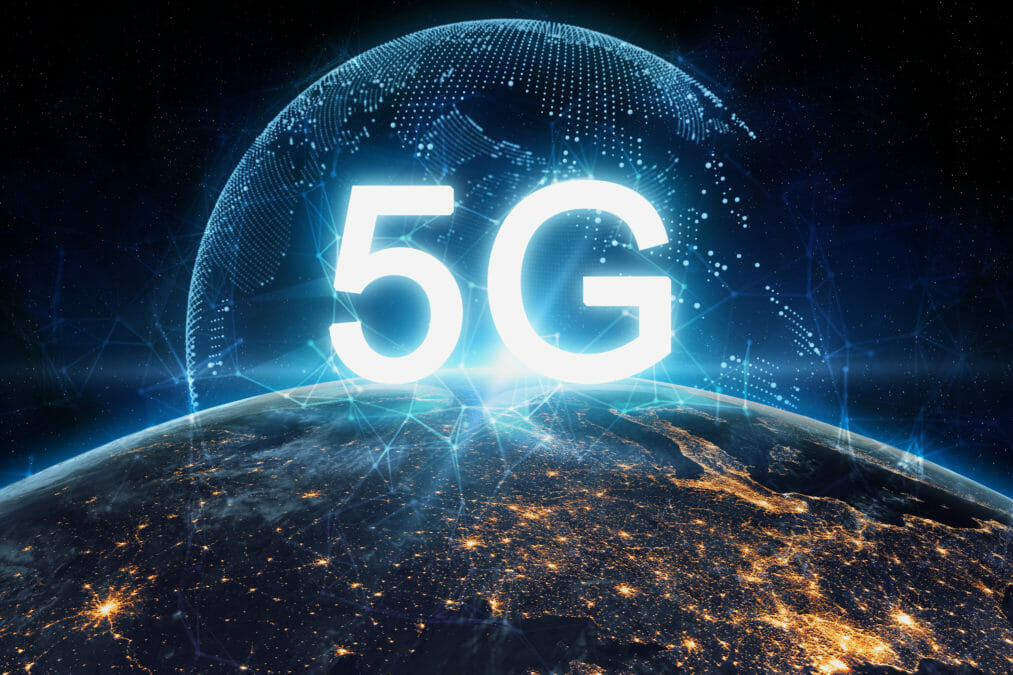“5G is all about money. It’s all about transformation,” Huawei CTO, Paul Scanlan, declared during his keynote speech on 5G.
The up-and-coming network has been a prominent talking point not only within the telecommunications industry, but also in global politics.
It’s set to provide the fastest connections yet, but concerns have been raised regarding potential security issues.
How 5G introduces new security vulnerabilities
At Huawei’s latest convention, which took place at The Savoy Hotel in London, Scanlan went on to give five reasons for people to trust 5G.
1. No harmful electromagnetic fields
The first plus point identified by Huawei’s CTO was that 5G does not emit harmful electromagnetic fields.
A report by the World Health Organisation declaring that radio waves are “so low that they are insignificant and do not affect human health” was referenced, and TV and radios were said to give out more radiation than phones.
2. 5G is more secure than 4G
The second reason Scanlan gave for trusting 5G was that it is more secure than 4G by design, citing differences in encryption of personal data as a main factor.
“Your ID is not encrypted on 4G,” explained Scanlan. “What we do with 5G is we encrypt it.”
Three more factors were then given in regards to the security credentials of 5G:
- End-to-end security between public land mobile networks (PLMNs)
- Unified authentication between 5G, Wi-Fi and Long-Term Evolution (LTE)
- A stronger security algorithm; while 4G has a key length of 128-bit, 5G will have 256.
Scanlan then implored standard authorities within governments to share the responsibility of effectively securing the network.
ISO 27001: the cyber security standard that organisations should strive for across the supply chain
3. 5G will spur economic growth
Huawei’s CTO then addressed the network’s possible impact on industries.
5G is predicted to increase the GDP of the manufacturing, energy, transport and media industries by 3-5% by 2030.
In manufacturing, for example, 5G is said to increase efficacy while predictive maintenance goes down, and the health industry could see the network being used for apps, remote diagnostics and connected ambulances.
Also, virtual consultancy, which can be done on 4G, will be improved due to a reduction in bandwidth disruption.
4. 5G will produce less carbon than 4G
Scanlan went on to state that 5G would be much more eco-friendly than its predecessor. The network at its fastest is expected to emit less CO2 than slow or medium speed 5G.
He went on to explain that in China, 5G is being developed and rolled out via street furniture-based solutions such as lampposts, which reduces carbon emissions, as well as complexity and site costs.
Additionally, operational costs have proved a challenge for network operators, but 5G can fix these.
5. 5G increases trust in digital systems
The final reason given for people to trust 5G was that its capabilities, when applied to various digital systems, could cause users to trust those systems more.
The Huawei CTO suggested virtual and augmented reality (VR and AR) as a collective example; even though it was made clear that 5G would need to improve in order to accommodate VR’s indoors-based nature, he said that VR and AR could prove helpful in the education sector in the future.
Future of VR and AR depends on user experience and education
Other given examples of systems in which 5G can help levels of trust grow included:
- Monitoring aquatic ecosystems
- Smart farming
- Robotic surgery
- Smart tourism
Not everyone agrees…
Possible overseas collaboration on 5G implementation remains a controversial topic in the United States, and UK prime minister Boris Johnson has weighed in by suggesting that the UK could follow suit by banning Huawei equipment in the country.
In response to this announcement, Jimmy Jones, telecoms cyber security expert at Positive Technologies, said: “Despite the controversy around Huawei – reignited by Prime Minister Boris Johnson’s comments yesterday – banning a telecoms vendor as major as Huawei in the launch of 5G would result in a massive cost for most countries.
“The reality is that Huawei is already embedded into the Telecom ecosystem, because many mobile network operators have already purchased or ordered Huawei technology. In UK’s case, many major operators are already using Huawei equipment.
“If the decision is made to exclude Huawei from the 5G network, this issue can’t be solved with a solution as idealistically simple as just swapping it for an alternative vendor immediately, especially as this would really require the retro fitting of previous mobile generations equipment as well.
“There is also the additional cost of delaying deployments, as companies are already testing 5G equipment, chosen Huawei, and are ready to buy. If Huawei is taken away as an option, this whole process – including testing – would have to be started all over again. Ultimately any country that does that is facing a more expensive network and a delay that could result on its national infrastructure being inferior compared to other countries, and therefore there economy less competitive.”







